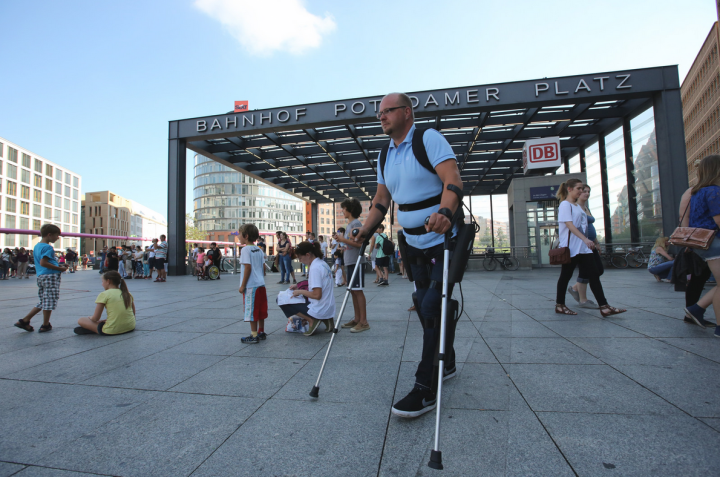
Even if you’ve been living under a rock for the past five years, chances are pretty good that you’ve heard about ReWalk at some point by now. Ever since its inception, the company’s amazing mechanical exoskeletons have been helping people with debilitating spinal cord injuries stand upright, turn, and walk on their own. The suits have been up and running for the better half of the last decade, but due to the fact that The U.S. Food and Drug Administration has been slow to give the technology its seal of approval, nobody (in the U.S., anyway) has been legally allowed to wear the suit outside of a medical rehabilitation facility.
Today, that changes. The FDA has finally granted ReWalk clearance to be used in homes, and the system is now available throughout the United States.
“This revolutionary product will have an immediate, life-changing impact on individuals with spinal cord injuries,” said Larry Jasinski, CEO of ReWalk Robotics. “For the first time individuals with paraplegia will be able to take home this exoskeleton technology, use it every day and maximize on the physiological and psychological benefits we have observed in clinical trials,” he added. “This is truly the beginning of ‘ReWalking’ as a daily reality in the U.S.”
The company’s eWalk skeletons come in two different varieties — ReWalk Personal, designed for personal everyday use; and Rewalk Rehabilitation, designed to be used as a training base for physical rehab. They two systems differ slightly, but both function in the same way.

“The person walks the system, the system does not walk them. The users are in control — when they want to sit, they sit, when then want to stand and walk, they do so,” said ReWalk inventor Dr. Amit Goffer.
This movement not only gives paraplegics the ability to move around again, but also gives them the added health benefits (cardiovascular improvements, loss of fat tissue, and muscle gain) that result from increased physical activity — not to mention a massive psychological boost.
Obviously this tech has huge potential to improve the lives of people with spinal cord injuries, but before ReWalk Robotics could set it loose on the public, the FDA needed to conduct extensive clinical studies on the suits to determine their safety and effectiveness. It took them a couple years, but after all that testing, the government has finally given ReWalk its approval.
The ReWalk Personal System is now available to anyone who meets a certain set of requirements from a medical examination and successful completion of a required training program. Find out more here.



